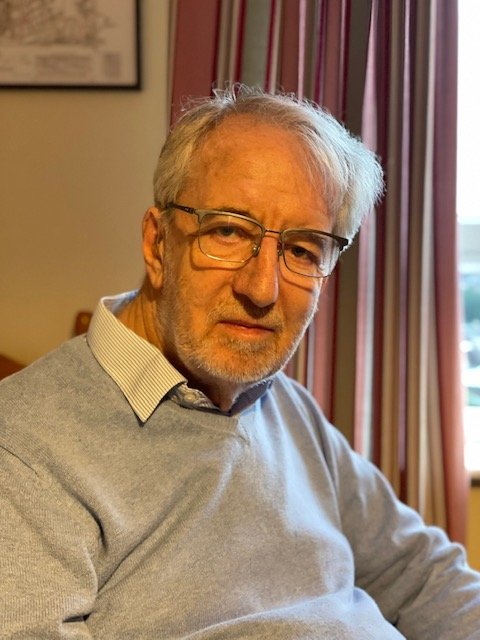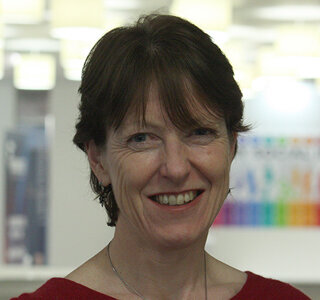
Our Blog

15-Minute Neighbourhoods
The idea of ‘15-minute neighbourhoods’ once seemed simple and non-contentious. Yet some are now claiming they are a tyrannical plot to exert control over people’s lives, orchestrated by the World Economic Forum!
Richard Harries reports on a study by the Young Foundation and Waltham Forest Council, which explored how 15-minute neighbourhoods can be introduced in ways which engage local residents, ‘focusing on what people need to thrive, whilst honouring the different aspects of their lives.’

How the NHS can encourage more community participation – and the difference that can make
An initiative in Liverpool is pointing the way towards a better style of leadership in our health systems, as Beth Golding describes.

People powered places
‘Place to me is not necessarily geography but more about the interplay between relationships and assets and how they can be harnessed effectively for the common good of the local community.’
Find our more from Lara about how to make those relationships work..

Let’s think more like scientists, if we want to improve participation of people with lived experience
Following up a Better Way event in 2021 to consider how to bring people with lived experience into research and policy-making, Professor Liz Richardson argues that organisations and policy makers should think more like ‘everyday scientists’ and if they did so, they would better respect the value people with lived experience can bring, and improve their approaches to participation.

Never underestimate the power of really listening
Samantha Abram had been working as a coach at the Brick in Wigan for several years. She was beginning to wonder whether simply meeting up with someone in a coffee shop for a chat had any real purpose… until she found the confidence to stay restful and patient in the silence - and then the real listening started.

It’s no good coming together unless we are all prepared to dive right in
If leaders want to come together to change a system, they can’t do it from a distance. They need to spend time immersing themselves in what is really going on, learning from individuals who experience the system at first hand, as Clare Wightman from Grapevine Coventry & Warwickshire explains.

‘Servant leadership’: what I have learned about power
‘I believe that everyone has power – we often talk about people being ‘powerless’ meaning they are unable to effect change in their lives, but the word is power-less, not power-none.’

What might the natural world teach us about Leadership?
In our putting relationships first cell, we’ve been talking about the qualities needed for leadership. James Dixon here gives his thoughts, starting with what he has learnt from nature..

“You’ve got to stop him hitting you in front of your children!”
Kristian Tomblin writes about his experience within a local authority of trying to achieve deep change in services for women experiencing domestic violence. “I’m learning to challenge old power and build new.”

Why is collaboration like a street party?
Collaboration is like organising a party, says Cate. But there are different ways of going about this. One person could decide everything, but there are other and better options too.

CSR - no thanks
Tom Levitt believes that ‘corporate social responsibility’ is just not good enough. Private businesses could do so much better, if they were to remodel themselves as ‘company citizens’. This is the first of three blogs on this theme.
If not CSR, What?
This is the second of three blogs by Tom Levitt on the theme of going beyond ‘corporate social responsibility’. Here he explores what the alternative can look like.
If Not CSR, What? - The Way Forward…
This is the third in a series of three blogs by Tom Levitt. Here he explains that businesses can operate in ways that are transparent, responsible, inclusive, ethical and sustainable - and that none of the required actions are unreasonable.

‘Creative destruction’: learning from the commercial sector to achieve a ‘Better Way
During the Better Way discussion on joining forces on Tuesday 21st September, which was focused on building alliances with the commercial/business sector of the UK economy, I introduced the concept of ‘creative destruction’. This is well known, and frequently practised, within the commercial/business sector but generally ignored by the statutory and voluntary sectors of the UK economy.

Holding onto hope
On December 1st 2020 the Carnegie UK Trust launched its report from the COVID and Communities Listening Project, which held over 80 conversations during the pandemic, ranging across the UK. Pippa Coutts led the project and says that the nightmare of the pandemic might be the catalyst needed to make change happen. A change which would put caring for each other at the top of the agenda…

Imagine a world in which power is replaced by connected networks and caring institutions
Lionel Joyce gives his vision, based on his compelling personal experience, of how to reform power in Britain today. ‘In my social dream of 2030 - in which power as we know it is absent and is reborn as connected networks, with caring services and places of genuine asylum when we need it - we have first to go through a revolution. The time has never been more right. We need to finally behead the Hydra of historic English power that lurks everywhere with its trailing snakes of corruption, inequality, unhappiness, squalor and poverty. Having done that through the 2020s we will be free to live our wild and precious lives in our wild and precious communities in the 2030s. Bring it on.

Can the idea of a covenant help us achieve a more collaborative society?
The term ‘covenant’ is rapidly gaining ground, and a new social covenant is proposed in Danny Kruger’s report for the Prime Minister on levelling-up and community power. But what does a covenant really mean, and can the ideas associated with it help us imagine and achieve profound change, for the better, as we eventually emerge from COVID-19? We explore these questions in an interview with Jenny Sinclair, founder and Director of Together for the Common Good.

Organisations as Communities
What if we brought the whole human being into the workplace? We’ve been talking in our changing practices and relationships cell about how to change how we work to help build relationships and community. Ben Collins suggests we think of organisations as communities in which we nurture relationships and trust people more and stop thinking about them in hierarchical ways, something which seems more possible in the light of Covid-19, as Zoom has been a great leveller. ‘Now there is an opportunity for our organisations to do something more conscious, more deliberate - acknowledge that power can come from the people who work in them - ultimately a force far greater than the artificial power invested in or created by those organisations themselves.’

Are we always doing good? A blog about sharing power
Sufina Ahmad, Director of the John Ellerman Foundation, writes about why it’s essential that charitable foundations do more to share their power, summarising her opening remarks at our roundtable with funders in July. ‘We often take it as read that we are doing good – but are we? Discussions in the sector, especially in the last year or two, about racism, systemic and structural inequalities, power imbalances and our language and framing of issues as often being very deficits focused, suggests that we are perhaps part of the problem too.’ In this blog she explores how charitable foundations can share, build and wield power more effectively, drawing on the recommendations in NPC’s report, A rebalancing act: How funders can address power dynamics.

The people are rising - it’s time to listen
‘The people are rising,’ says Margo Horsley, ‘They want to be listened to and know that their voices have been valued as the world around them changes; they want to shape that change; they want to hold institutions to account.’ Drawing on her experience as founder and CEO of Fixers, she explains why people in organisations need to listen carefully and empathise before they act.
Featured Writing
